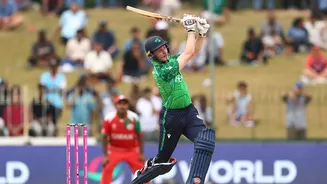Burn Prevention Strategies
Burns are among the most frequent Diwali-related injuries to children. To prevent these painful incidents, constant supervision around fireworks and diyas
is crucial. Keep children at a safe distance from firecrackers, never letting them handle these items independently. Parents should ensure children wear appropriate clothing, such as cotton fabrics, and avoid synthetic materials that can easily catch fire. Furthermore, it is very important to have a first-aid kit, readily accessible for minor burns. Teach children about fire safety, emphasising the dangers of playing with fire and the importance of reporting any burns to a responsible adult right away. Ensure that fireworks are set off only in designated, open spaces, far away from flammable materials and crowded areas. By taking these precautionary measures, parents can significantly lower the risk of burn injuries and safeguard their children during Diwali celebrations.
Allergy Management Tips
Diwali can also exacerbate allergic reactions in children because of the smoke from firecrackers and the exposure to various festive decorations. Parents should be aware of potential allergens, like dust, pollen, and chemical irritants in the air. For children with known allergies, pre-emptive measures are key. This includes administering any prescribed medications, like antihistamines or inhalers, before the festivities begin. Encourage children to wash their hands frequently to remove allergens. Keeping windows closed during peak firework times can reduce exposure to smoke and irritants. If a child develops allergic symptoms like sneezing, coughing, or skin rashes, quickly remove them from the environment and provide the necessary medical attention. Be prepared to seek immediate medical help if symptoms are severe. Ensure there are safe areas, free from smoke and allergens, to provide relief and protection to children prone to allergies during the Diwali season. Being vigilant and prepared can help you to ensure that children enjoy a healthy and allergy-free celebration.
Handling Accidents Effectively
Accidents can happen, even with careful precautions. It is important to know how to respond appropriately. Have a well-stocked first-aid kit and know how to use it. In case of a minor burn, cool the affected area under cold running water for 10-20 minutes, then cover it with a sterile dressing. For larger burns or injuries, seek immediate medical attention. Be careful of any potential trip hazards, such as scattered items or uneven ground, particularly in low lighting. Keep pathways clear and well-lit. Teach children to be cautious around crowded areas and remind them to watch where they are going. Always make sure that kids have clear paths to run on in case of an emergency. Establishing clear safety rules, practising them, and being prepared for any possible accident can help to minimise the severity of Diwali incidents and ensure the safety of children.
Safe Firework Practices
When it comes to fireworks, safety is paramount. Only adults should handle firecrackers, and children should always remain at a safe distance. Never allow kids to ignite fireworks themselves. Choose open spaces for launching fireworks, away from dry grass, buildings, and other flammable materials. Always follow the instructions provided with the fireworks. It is crucial to have a bucket of water or a fire extinguisher nearby in case of any incidents. After using fireworks, douse them in water to ensure they are fully extinguished before disposing of them. Teach kids about the dangers of fireworks and the importance of respecting safety rules. Explain why playing with fireworks is unsafe and that they can be used only under adult supervision, in a designated area. By adhering to these guidelines, parents can guarantee that the joy of fireworks does not lead to any harm, making Diwali a safe and memorable celebration for all.
Managing Noise Pollution
Diwali can involve a lot of noise. This loud noise can be harmful, particularly for young children and those with pre-existing health issues. The high decibel levels generated by firecrackers can cause temporary or even permanent hearing damage. Noise can cause stress and anxiety in children. For infants and toddlers, the noise can be especially upsetting, causing sleep disturbance and irritability. Parents should aim to reduce children's exposure to loud noises. This could be done by closing windows and doors, or by providing noise-cancelling headphones. Consider providing them a quiet space to relax and play during the peak firework times. Educate kids about the importance of protecting their ears and how to identify when noise levels are too high. Being mindful of the effects of noise pollution and implementing strategies to mitigate its impact will contribute to a more enjoyable and safer Diwali experience for children.
Food Safety during Diwali
Diwali brings with it an array of tempting treats. Food safety is essential to prevent any health problems in kids. Be careful about food preparation and handling. Ensure that the food is freshly prepared. Check that all food handlers have good hygiene practices. Be mindful of potential allergens. Be aware of the ingredients of the sweets and other foods, and check for any common allergies like nuts. Serve meals in a clean environment. Ensure that kids wash their hands before eating and keep their hands off the food. Monitor the children for any food allergies or signs of sickness. Be prepared to deal with any symptoms. Having a safe and hygienic eating environment will help to keep kids healthy and happy while they are enjoying the Diwali treats.














